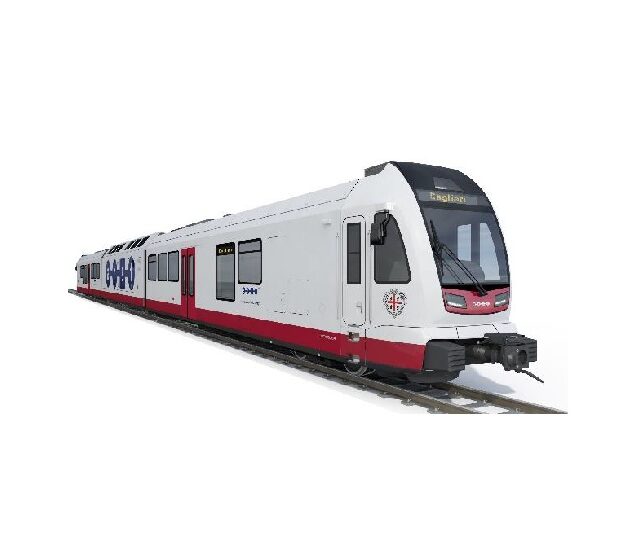
These systems, which incorporate NM12 Twin fuel cell stacks developed by the EKPO1 joint venture, take hydrogen and oxygen from the air to instantly generate electricity used to power electric motors. These compact systems, with their optimized design, deliver high durability and can withstand intensive use.
OPmobility will initially equip 15 hydrogen-powered trains and expects to ramp up deliveries over the coming years. With their long range and short refueling time, hydrogen-powered trains offer an ideal solution for decarbonizing rail mobility. Able to operate on all types of electrified or non-electrified routes without the need for major infrastructure investment, they represent a major opportunity for growth at a time when a large part of global rail networks remain non-electrified (around 28% in China, 40% in Europe and 95% in the United States).
Laurent Favre, Chief Executive Officer of OPmobility, says: “This new contract reinforces OPmobility’s position as world leader in hydrogen mobility, capable of offering a complete range of technological solutions from storage systems to energy generation. The contract also confirms our conviction that hydrogen is an ideal solution for decarbonizing heavy mobility. It is by joining forces, as we are with Stadler, that we will be able to promote the rapid rise of hydrogen in rail mobility and ensure it plays its full role in the energy transition.”
(1) EKPO Fuel Cell Technologies GmbH is an OPmobility and ElringKlinger joint venture that supplies fuel cell stacks and bipolar plates for a broad range of applications.
With an order book worth almost €4 billion, a presence across the entire value chain, and industrial capacity in Europe, North America and Asia, OPmobility is positioned as a major player in the hydrogen sector. The Group’s 2030 market share targets are 25% for hydrogen storage, 10% for EKPO fuel cell stacks, and 10% for fuel cell systems.
Cover photo: Stadler hydrogen train (source: Stadler©)




 Lu public network security: 37140202000173
Lu public network security: 37140202000173



